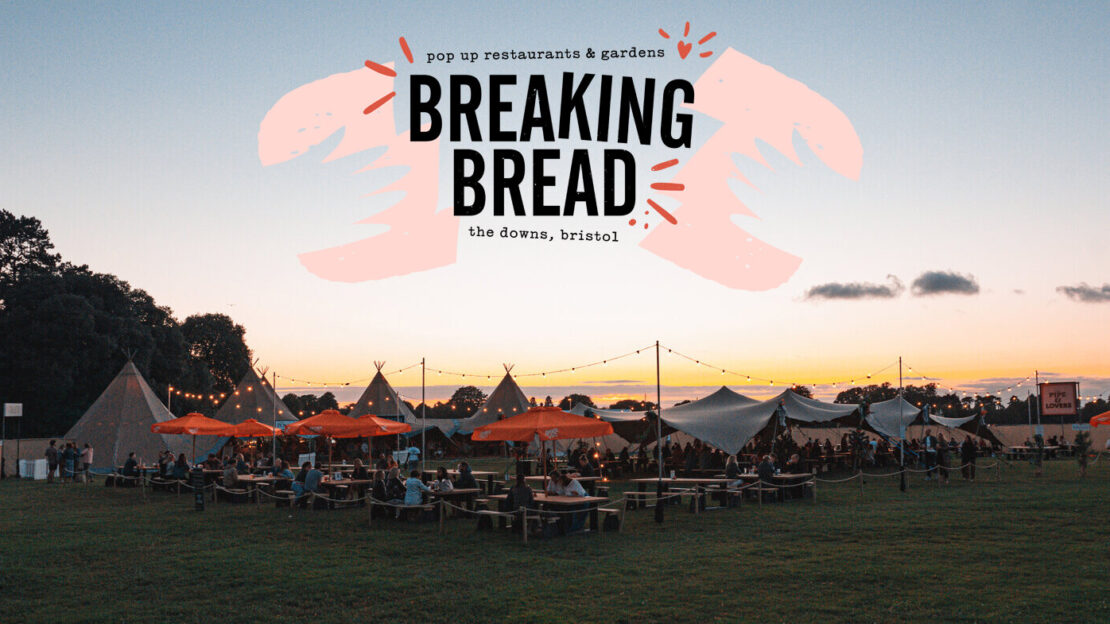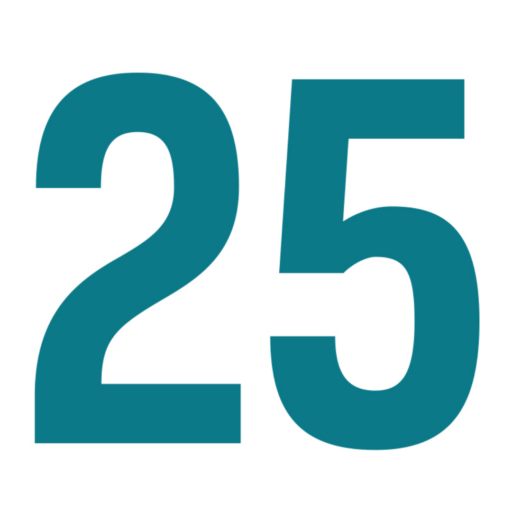Pauline Bourdon, Sustainability and Social Cohesion Coordinator at Team Love, shares her experience of working on Breaking Bread, a pop-up, socially distanced, drinking & dining experience set up on The Downs in Bristol by the team behind Love Saves the Day Festival. Pauline researched and produced a report detailing the Social, Economic and Environmental Impacts of the event, released this March 2021, her blog explains her process of producing the report, its key findings and Breaking Bread’s environmental, economic and social achievements and goals moving forward.
“In September 2019, when I joined Team Love as their sustainability & social cohesion coordinator we committed to make 2020 our Year Zero across all our events. We wanted to capture our activity as it was, to gain a better understanding of our impact, and set-up a 5-year sustainability plan. Little did we know that 2020 would indeed be a Year Zero but for different reasons. With the pandemic shutting the festival and hospitality industry overnight, we postponed all our events to 2021 in the hope that it would be safe to do.
Like everyone in the industry, I found myself with no work, confined at home, with only the lives of two magpies for live entertainment, and in the midst of an internal battle with mental health, melancholy and a sense of grief. People who work in events thrive on social connections, seasonal and outdoor living, community, intense work hours and artistic experience. It’s our passion, our work, our way of life, our friendship groups, our families, our inspiration – it’s inherent to who we are.
As I watched my fellow festival and hospitality workers losing all their work, I witnessed a vibrant social engagement from our community: pubs, event organisers, venues, freelancers gathered their skills to support and feed society’s most vulnerable. Alongside community support, conversations on how to create a more sustainable industry started to happen with an energy and engagement very rarely seen.
I believe that events and festivals are incredible living labs that can inspire the important discussions, new behaviours and initiatives needed to tackle the climate and social emergency we’re facing. Like many others, lockdown gave me plenty of time to think and some key questions surrounding our industries emerged: How has the lack of work, social connections and events (due to the pandemic) impacted on people’s well-being? Can events, pubs and social gatherings improve people’s mental health and the British economy? How can we monitor and improve our environmental impact? What can we do differently to create purposeful businesses?
When Breaking Bread was launched at the end of July 2020, we all quickly realised that we had an opportunity to try to answer these questions and analyse, not only our environmental impact, but our social and economic impact too. Team Love has never undertaken an impact survey of this kind before but the social and environmental movements that swept across 2020 gave us the inspiration to look in depth at how we can improve as an organisation, and build in transparency and accountability.
Breaking Bread’s 2020 Impact Report, which was released in March 2021, was articulated around the 3 pillars of sustainability (People, Economy, Environment). The first part of our research confirmed the need for people to go back to a type of social activity within a COVID-safe environment with 61% of our customers very much looking forward to being able to go back to pubs & restaurants.
“Supporting the local hospitality industry,” was the number one reason for our customers to visit Breaking Bread, with, “being able to see my friends and family in a COVID-secure setting,” coming second. Only 2.7% of COVID outbreaks were linked to the hospitality industry at the end of October, highlighting the level of resilience and skills that can be found in the sector and the ability to provide safe and secure experiences.[1]
I wanted to show that these industries were capable of adapting to ever evolving regulations and maintaining a social and cultural offering, while also providing a high level of health and safety for customers. Using Breaking Bread as an example, 85% of our customers felt safe to attend, and for 55.5% of them, this gave them confidence to visit several times.
Throughout the three months of Breaking Bread’s operation, the project provided work for over 100 events and hospitality industry workers. Working with a supply chain of around 50 organisations – 36 of which were directly based in Bristol – across the food, drink and events industries. After my own personal experience and the testimonies of other colleagues, I decided to survey our crew and research the impact that the pandemic, and going back to work, had on their wellbeing and mental health. It was clear that being able to go back to work and interact with customers and co-workers had a positive impact on the crew, however the uncertainty created by the evolving regulations kept a certain level of anxiety present for most of them.
One of my favourite and most illuminating statistics of the report, is that by employing 100 staff previously on furlough and Universal Credit process, Breaking Bread saved the government an estimated £220,000 through direct employment! At a time where authorities can challenge the viability of our industries, such numbers are important to feed into a bigger debate and highlight the economic weight and overall public benefits that events have.
As Breaking Bread was organised with a quick turn around and in challenging times, and COVID safety was the most important, I had a good opportunity to analyse what our environmental sustainability standards were. I’ve realised that due to our team sharing the same sustainable ethos, our main key sustainable actions were already at a very encouraging stage. We, for example, always use HVO fuel, LED lights, compost loos and local and ethical suppliers. A strong waste management plan was in place alongside a ban on single use plastics items across site.
After calculating the overall carbon footprint of the event, the directors committed to balance all our emissions – energy, waste, water, crew transport and deliveries. In total we balanced 16.4 tonnes of CO2e with ecolibrium, protecting 38 acres of threatened rainforest, planting 49 trees in Northern Malawi through a community-led reforestation project and 74 trees in the UK through a Woodland Carbon Code verified planting programme.
Finally, I wanted to highlight the social engagement I witnessed during the pandemic and the commitment from Breaking Bread to generate positive action and positive impact. Sharing Bristol’s One City Approach to make Bristol a fair, healthy and sustainable city.
Restaurants involved with Breaking Bread, The Pony & Trap and Pasta Loco / Ripiena, were both also involved with Bristol’s Cheers Drive project, which provides restaurant quality food to those experiencing homelessness in Bristol. To date the project has delivered over 150,000 meals to some of society’s most vulnerable by partnering with local chefs. Over Christmas 2020 the project delivered food to over 75 locations across the whole of Bristol.
Pubs that had been part of Breaking Bread;The Pipe & Slippers and The Love Inn, joined forces with The Plough Easton who had responded to the Covid-19 crisis by setting up the Community Care Package project. A collective of pubs across the City have helped pack & deliver over 24,000 free fruit and veg boxes to people who need them. When the second lockdown forced Breaking Bread to close a couple of days early, the team quickly redirected their efforts and, with donations from Breaking Bread customers, produced over 1700 meals for Bristolian families facing food insecurity. Last month we launched Breaking Bread ready meals that can now be enjoyed at home. Every Breaking Bread Ready Meal bought, funds go towards providing a meal to Bristolians facing food vulnerability.
I hope that this report begins to answer some of the questions our industries face over the last and will provide data to inform comparable businesses when considering their own new initiatives. Our industry is essential to the wellbeing of communities, to collective joy, and it is more than ever important to find ways to highlight the overall value of our industries to the British public and authorities. “
Download Breaking Bread’s Social, Economic and Environmental Report HERE. Follow Pauline Bourdon on instagram @Pauline.Bourdon and @Soliphiliaco.
This guest blog originally appeared in our March 2021 Vision: 2025 newsletter. Sign up to receive monthly event sustainability news, case studies and guest blogs direct to your inbox using the form below.
[1] Public Health England – Hospitality sector


